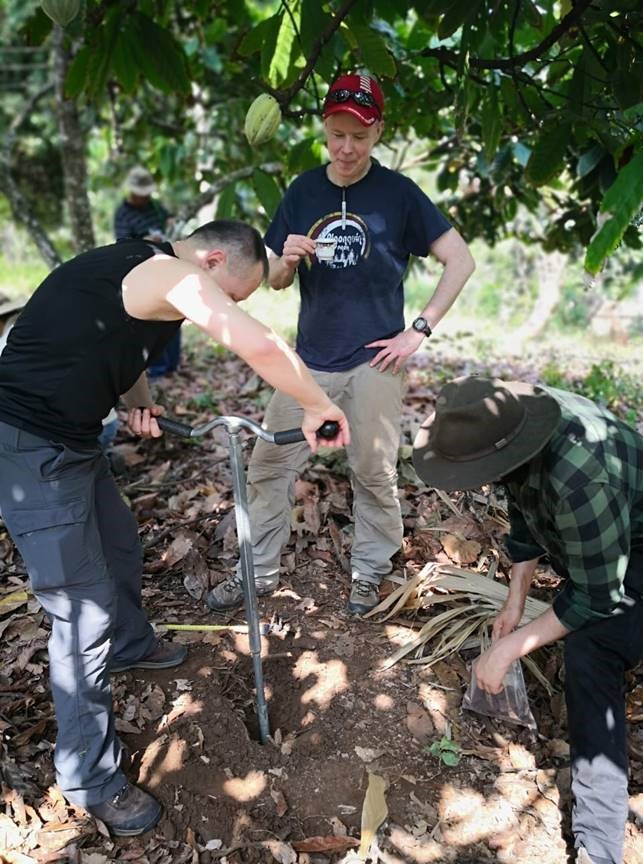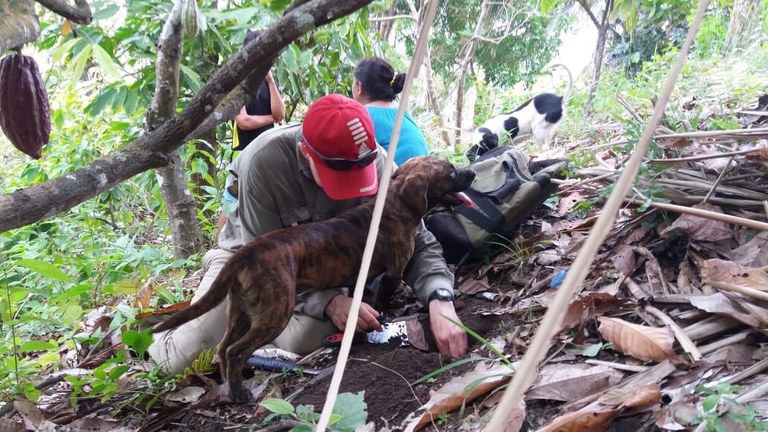Posted: March 28, 2019
Canine team suelo helps advance cocoa research in Colombia
Over the last year, the International Center for Tropical Agriculture (CIAT), the USDA-NRCS Soil and Plant Science Division, and faculty from Penn State have been working together to better understand the accumulation of cadmium in soil where cacao trees are grown. Cacao has been used as a replacement crop for coca in Colombia, but recent European Union legislation limiting human ingestion of food products with elevated cadmium threatens Colombia's production of cocoa. The current research project is focusing on an area of northern Columbia in the mountains near Palomino on the Caribbean coast. The project's purpose is to better understand landscape limitations to cocoa production and ascertain patterns of regional cadmium soil levels.

Farms being sampled are small 1-3-hectare plantations where cocoa has been grown for typically less than 20 years. During the weeks of March 18 through April 1, sampling by an interdisciplinary team of soil and plant genetic scientists has been underway. The pictures here show Dr. Drohan (Penn State) surveying the hard work of NRCS soil scientist Zamir Libohova and Penn State cocoa research fellow Daniel Guarin of Bogota, Colombia. Ample assistance at hole digging and soil sampling has been provided by the regional canine "suelo" sampling group.


